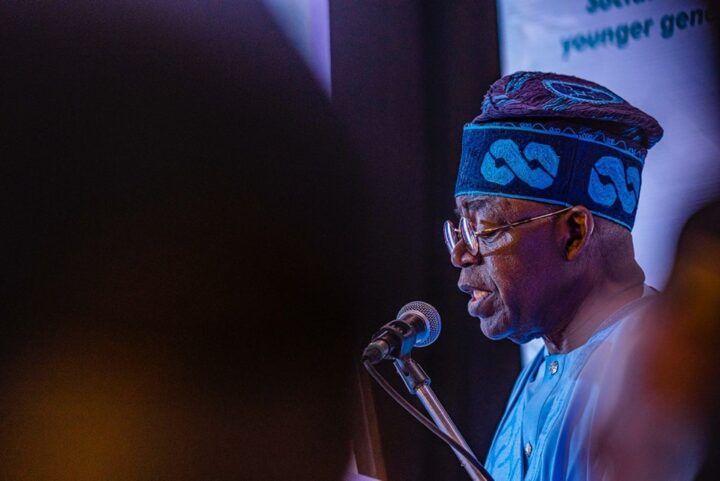The Bola Tinubu administration is only now discovering what is common among development experts: neoclassical economic policies always seem right on paper, until you begin to implement them! The administration’s two major economic policies– the removal of petrol subsidy and the floating of the Naira- show its neoclassical bent, but it appears both are not to be getting the desired results with the government now backtracking.
The central idea of the neoclassical economic theory is that market forces rather than state policies should determine the production, pricing and consumption of goods. It recommends a ‘pairing down of government’ –the removal of the state as much as possible in economic decisions– and instead allowing market interplay, the forces of demand and supply, be the drivers of those decisions.
But has this always worked? The short answer is no. Nigeria’s first romance with this theory was the IMF-imposed SAP programme, starting from the mid-80s to the 90s. It was expected to incentivise local production and liberalise the Nigerian economy through, among other things, the devaluing of the Naira. The goal was to make imports expensive, and exports cheap and attractive, among other objectives.
The assumption was that Nigerians would seek local alternatives if imports were expensive, while the country’s exports would become attractive to foreign buyers because of the cheap Naira. With the benefit of hindsight now, those objectives seem laughable. Nigeria was not producing anything worth exporting, outside crude oil. So, there was hardly any good or services the global economy would have been interested in buying from the country even if it was dirt cheap.
ADVERTISEMENT
Advertisement
What SAP ended up doing was to drive the cost of producing local goods and services astronomically high. This was because nearly all the machinery needed to produce these goods was imported and the Naira’s devaluation made it very expensive to import them. This, in turn, led to the adjustment in prices of goods and services, causing skyrocketing inflation. This was besides the fact that nearly all the goods consumed in the country were imported and devaluation made them expensive and often out of the reach of the average person.
In time, many companies could not cope with the difficult economic climate and closed shop. It was during the implementation of the SAP policies in the ’80s and ’90s that Nigeria witnessed the largest ratio of shut-down factories and small businesses. In Kano, the period coincided with the downturn in the textile business and the closure of many factories in Ogba, Lagos, which were taken over by Pentecostal churches. Similar stories of woes were told in Port Harcourt, Kaduna, Warri and other large Nigerian cities.
For ordinary Nigerians, the SAP period was a difficult one, occasioned by high inflation and unemployment. The lines for the few existing jobs were very long. Universities stopped their feeding programmes. The ratio of poverty increased with many Nigerians finding it difficult to have three-square meals. It was about this time too that Nigerians stopped buying brand-new cars and Tokunbo became prevalent. The automobile manufacturing companies in Nigeria, Peugeot, Volkswagen and others closed down their assembly plants and resorted to importing vehicles or diversifying into other businesses.
Advertisement
One of the most significant impacts of SAP, perhaps unintended, was brain drain. With the Naira so weak, it made going overseas for work so attractive. Nigerian doctors, nurses, pharmacists, engineers and other professionals fled the country in droves to earn the almighty USD or Pound Sterling. Many Nigerian professors, some of them with global reputations such as Chinua Achebe, Wole Soyinka and Ola Rotimi, also left the country and our universities suffered for it. The economic and social costs of all this are simply incalculable.
SAP did not achieve its goals of liberalising the Nigerian economy or reducing unemployment and poverty. It is perhaps ironic that all it set to reverse worsened with the implementation of the programme. Today, some economic experts still blame SAP for being the root cause of the economic crisis the country faces. It is not only in Nigeria that IMF’s structural adjustment programmes failed. It was adjudged not to have achieved its intended objectives in Zambia, Argentina, Indonesia, Jamaica, Greece and many others.
Therefore, implementing policy ideas endorsed by the Bretton Woods institutions of the World Bank and the IMF is no guarantee that they will succeed and achieve their intended goals. Already, it appears that the government has backtracked from implementing a full-blown market regime in the downstream sector. With the continuous fall of the value of the Naira and rise in the price of crude oil, the actual price of litre of petrol would have been around N1000, according to marketers. That it has remained around N600 despite the changing market dynamics suggests some state interference by way of subsidy.
Perhaps, the policy concerning the Naira also requires a second look. Since the floating of the currency, it has depreciated fast, and even more worrisome, the policy has not achieved the goal of a uniform exchange rate for the naira, with a N200 gap opening between the official price it is sold by the CBN at the Investors and Exporters fx window, and the parallel market. Or maybe it is too soon to worry.
Advertisement
Deciding on the right policy mix for a country is not a walk in the park. All policy ideas and options come with their merits and demerits or threats, requiring constant adjustment, or complete abandonment. The point of this essay is that no one size fits all, and just because an idea is promoted by the World Bank or the IMF does not mean it will succeed. The Chinese have mastered the art of turning orthodox economic principles on their heads and yet making tremendous progress, challenging the West for economic and political dominance. We can also adopt this guided approach, choosing orthodox or unorthodox economic policies that best suit our local conditions.
Views expressed by contributors are strictly personal and not of TheCable.
Add a comment







